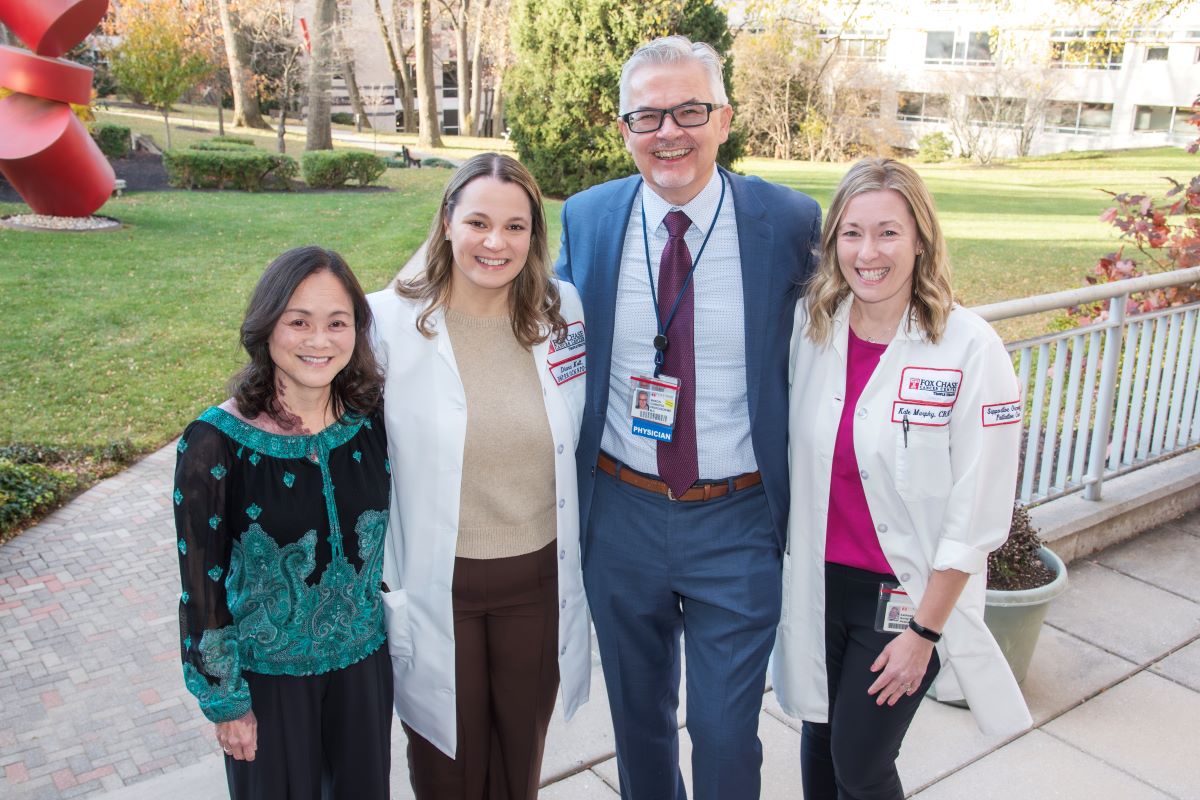Weather Alert: Following the winter storm, all Temple Health hospitals, campuses and clinical locations remain open, though some appointments or services may be adjusted. Patients will be contacted directly if their visit is affected. Please check TempleHealth.org or FoxChase.org for updates and monitor myTempleHealth for changes to scheduled appointments.
Breadcrumb
- Home
- Fox Chase Cancer Center News
- Strengthening Skills in End-of-Life Care
Strengthening Skills in End-of-Life Care

Fox Chase Cancer Center recently hosted its annual End-of-Life Care Symposium, a full-day academic program designed to advance team-based approaches to caring for patients at the end of life. What began as a focused educational offering for nurse residents has grown into a system-wide and increasingly region-wide event, drawing participants not only from across Temple Health but also from external institutions.
This year’s symposium reflected an exceptionally broad interprofessional presence, with attendees representing physicians, advanced practice providers, nurses, social workers, pastoral care teams, physical and occupational therapists, speech-language pathologists, respiratory therapists, medical assistants, community outreach staff, performance excellence, medical-legal and public health professionals, medical translators, and more. The diversity of perspectives strengthened the program’s core aim: improving communication, coordination, and compassion in the care of patients at the end of life.
The agenda covered a wide range of clinical, ethical, and practical topics, including communication strategies, decision-making in critical care, cultural factors, palliative sedation, dementia, suicidality at the end of life, and the distinctions between hospice and palliative care. Through collaboration with the Temple University Social Work Continuing Education office, the symposium provided continuing education credits for social workers, in addition to nursing and physician credits.
According to Kate Murphy, DNP, CRNP, the program’s evolution reflects both need and engagement across—and beyond—the system. “The content has been intentionally shaped by attendee feedback, ensuring it meets the educational needs of those providing end-of-life care.”
Diana Kott, DNP, RN, OCN, NPD-BC, emphasized the importance of the interprofessional design. “When we learn as a team, we strengthen communication across disciplines and ensure that the patient remains at the center of care.”
Jennifer Keller, MSS, LCSW, OSW-C, noted the value of shared expertise in spaces like this. “This conference allows us to address some of the most meaningful and challenging topics in our daily work, supported by the perspectives of multiple disciplines.”
Marcin Chwistek, MD, FAAHPM, underscored the importance of continual skill-building in palliative care. “End-of-life care must be taught, practiced, and shared. What we learn in sessions like this directly improves the experience of patients and families.”
The planning committee (Keller, Kott, Chwistek, and Murphy) noted that the symposium’s continued expansion—both in size and in professional diversity—reflects a growing commitment to strengthening high-quality end-of-life care across Fox Chase, Temple Health, and the broader clinical community. The event will continue to evolve to meet the needs of the diverse teams who care for patients during some of the most complex moments in medicine.
Fox Chase Cancer Center (Fox Chase), which includes the Institute for Cancer Research and the American Oncologic Hospital and is a part of Temple Health, is one of the leading comprehensive cancer centers in the United States. Founded in 1904 in Philadelphia as one of the nation’s first cancer hospitals, Fox Chase was also among the first institutions to be designated a National Cancer Institute Comprehensive Cancer Center in 1974. Fox Chase is also one of just 10 members of the Alliance of Dedicated Cancer Centers. Fox Chase researchers have won the highest awards in their fields, including two Nobel Prizes. Fox Chase physicians are also routinely recognized in national rankings, and the Center’s nursing program has received the Magnet recognition for excellence six consecutive times. Today, Fox Chase conducts a broad array of nationally competitive basic, translational, and clinical research, with special programs in cancer prevention, detection, survivorship, and community outreach. It is the policy of Fox Chase Cancer Center that there shall be no exclusion from, or participation in, and no one denied the benefits of, the delivery of quality medical care on the basis of race, ethnicity, religion, sexual orientation, gender, gender identity/expression, disability, age, ancestry, color, national origin, physical ability, level of education, or source of payment.
For more information, call 888-369-2427